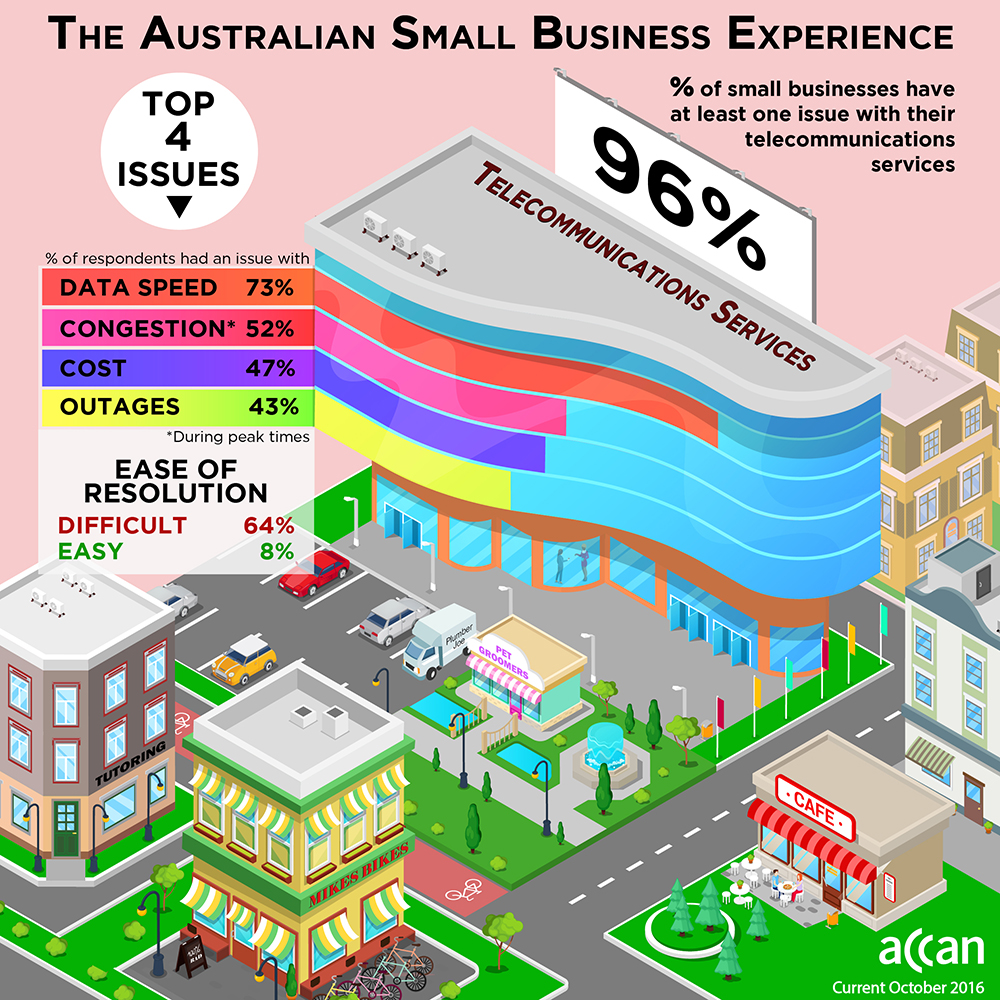Our focus
- Details
- Hardship research publications
University of Sydney researcher, Dr Justine Humphry, surveyed and interviewed a number of Australians experiencing homelessness as well as employees of homelessness service providers. This resulted in a comprehensive report into the internet and mobile phone usage habits and experiences of this group of Australians.
The full report, including further information, can be found on the ACCAN Grants Scheme webpage.
- Details
- Hardship research publications
Financial Counselling Australia (FCA) compiled a report outlining how the telecommunications industry's financial hardship policies and practices compare with those of the banking, energy and water industries. Through FCA's first-hand experiences of working with clients experiencing, or at risk of, financial hardship, as well as through discussions with consumer advocates, staff from industry hardship teams, government representatives and staff from external dispute resolution (EDR) schemes, a set of best practice recommendations was compiled.
The final report, with the recommendations, can be found on the ACCAN Grants Scheme webpage.
- Details
- Hardship research publications
The National Children's and Youth Law Centre investigated the consumer, legal and financial issues faced by young Australians when they use mobile phones. This investigation led to a report outlining some of these common issues as well as to a set of resources for young Australians to better understand and navigate the mobile phone marketplace.
Funded under the ACCAN Grants Scheme, the final report as well as additional information, can be found on the Scheme's webpage.
- Details
- Small Business
In 2016 ACCAN commenced an annual survey of small business operators to provide an insight into the most prevalent telecommunications issues affecting small business in Australia. The 2016 survey has now closed. We will commence our 2017 survey later this year.
ACCAN will use the survey reports to highlight concerns to the telecommunications services providers and the Telecommunications Industry Ombudsman (TIO) to work toward improved services for Australian small business consumers.
Survey reports
2016 Survey
Download: ![]() Small business survey 2016 report794.86 KB
Small business survey 2016 report794.86 KB
Download: ![]() Small business survey 2016 report1.19 MB
Small business survey 2016 report1.19 MB
- Details
- Small Business
Australian small businesses provide employment for around 4.8 million people. As most small businesses rely on telecommunications services to be able to do business, it is essential these services be available, reliable and affordable. When a small business cannot access a broadband connection or make phone calls, business proceses can become difficult. When a small business operator waits in a call centre queue or is transferred between different customer service representatives trying to have a fault resolved, they are not only losing time, but money. This impact on productivity and turnover affects not only the small business owner, but its employees and customers.
ACCAN has produced guides that will provide small business consumers with the tools to assist them to:
- Understand their rights as a phone and internet consumer
- Be aware of the important features of telecommunications services and products to help them to choose products that best suit their business needs.
- Understand available complaint mechanisms
- Learn ways to get the most out of communications services they rely on
Research Reports:
- Informing Small Business: Examining fixed phone and broadband products
- Small Business Telecommunications Service Use and Experience
- Details
- Submissions
ACCAN recently submitted our response to the Australian Communications and Media Authority’s (ACMA) Review of the Numbering Plan and other instruments discussion paper. Telephone numbering is a fundamental aspect of our communications infrastructure, providing consumers and small businesses with mechanisms to recognise and be recognised through calls and texts.
Read more: Review of the Numbering Plan and other instruments discussion paper
- Details
- Submissions
ACCAN recently submitted to the inquiry into the shutdown of the 3G mobile network and telecommunications services accessibility.
- Details
- Submissions
Funding of universal telecommunications services (RBS Review)
ACCAN recently commented on the Department of Infrastructure, Transport, Regional Development, Communications and the Arts’ consultation on the Funding of universal telecommunications services (RBS Review). The funding of the universal service obligation (USO) is integral to ensuring the efficacy and longevity of Australia’s communications services, especially for those who are living in regional, rural and remote areas, have specific accessibility needs, or are living on a low income.
Read more: Funding of universal telecommunications services (RBS Review)
- Details
- Submissions
ACCAN recently submitted to the Australian Communications and Media Authority (ACMA)’s consultation paper on Expiring spectrum licences (stage 2) – information gathering, and views on uses of frequency bands and alternative licence conditions (the Consultation Paper).
ACCAN supports the ACMA’s finalised expiring spectrum licence (ESL) stage 2 information gathering framework and its public interest criteria (PIC) as outlined in the Consultation Paper.
ACCAN recommends that the ACMA:
- Details
- Submissions
ACCAN recently submitted to the inquiry into regional telecommunications in Western Australia, focusing on mobile telecommunications failure during widespread power outages.
- Details
- Submissions
ACCAN recently submitted to the Senate Select Committee on Adopting Artificial Intelligence (AI).
ACCAN considers that the consumer sector requires greater support to engage with AI and other emerging technologies that will impact consumers. At present there is no consumer group funded to engage with AI and emerging technologies on behalf of consumers. As AI and other emerging technologies become embedded in our societies and markets there are growing risks of harms.
- Details
- Submissions
ACCAN recently submitted to the Australian Communications and Media Authority’s (ACMA) consultation on its Five-year spectrum outlook 2024–29 and 2024–25 work program Consultation Paper. Our submission:
- Supports the ACMA’s public interest criteria with respect to spectrum planning and allocation.
- Encourages the ACMA to explore the adoption of shorter-term flexible spectrum licences.
- Supports the ACMA giving further consideration towards ensuring that their engagement strategies fully capture consumer experiences as end users of spectrum.
- Supports the introduction of a reply comment period for future spectrum consultations.

